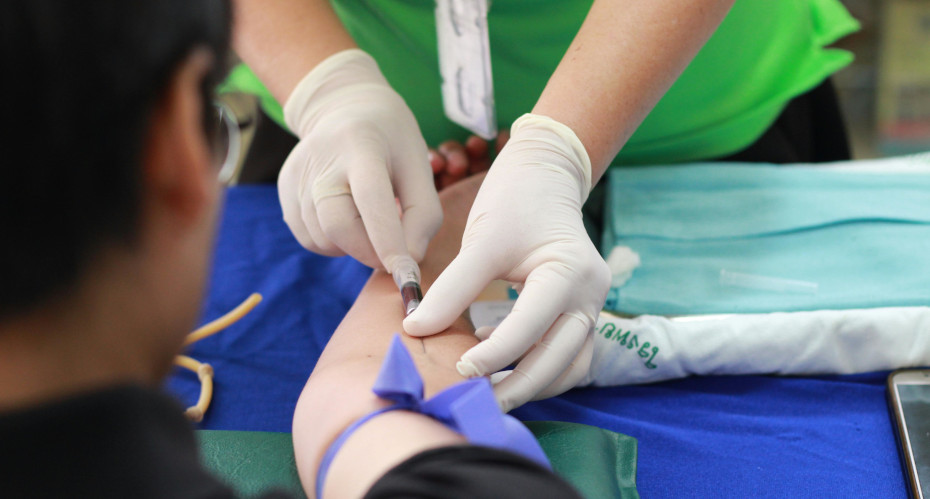£2.4 million to expand research to spot early cancer warning signs in routine blood tests

Photo by Pranidchakan Boonrom: https://www.pexels.com/photo/person-getting-his-blood-check-1350560/
A pilot project to help GPs spot early warning signs of cancer from routine blood tests has received £2.4 million to roll out, and test it is working.
The NHS Cancer Programme, supported by SBRI Healthcare and the Accelerated Access Collaborative, has awarded the funding to the University of Exeter under the NHS Cancer Programme Innovation Open Call.
In Devon, the Royal Devon University Healthcare NHS Foundation Trust tests 500,000 routine blood tests each year in the hospital laboratories. These tests include a platelet count.
Platelets are tiny blood cells that help the body form clots to stop bleeding. Blood tests already include a platelet count as standard – and a high platelet count can sometimes be an indicator of certain types of cancer, including lung and bowel cancers.
Levels of platelets vary depending on age, and whether a person is male or female. The Exeter team has developed an algorithm to apply more personalised thresholds, to more accurately pick up who might be at risk.
The project is entitled High or Elevated Level of Platelets (HELP) Flag. It is currently being applied to results from a handful of GP practices in Devon. The new funding will enable the team to expand this number, and test how well the new system is working to detect cancer earlier, which improves patient outcomes and can save lives.
Professor Sarah Bailey, of the University of Exeter, said: “I’m delighted that this new funding will give GPs accurate information on blood count for more patients, which could tell whether they’re at elevated risk. We know that catching cancer early can save lives, and we hope this may one day be expanded across the NHS.”
The initial pilot is expected to run for two years, including a staged expansion in specific regions. If rolled out across NHS, experts believe it could flag 10,000 patients a year who have a raised blood platelet count before their cancer diagnosis.
Professor Tim McDonald, Clinical Director for Pathology at the Blood Sciences Laboratories at the Royal Devon University Healthcare (RDUH) NHS Foundation Trust, said: “This research really is a win-win for improving cancer diagnosis. It’s actually very simple for us to add to the routine tests we’re already conducting, and we hope it will mean that GPs can catch cancer in some patients earlier, which we know leads to the best outcomes.”
The initial pilot project was funded by philanthropist David Walton. The University of Exeter, the Peninsula Cancer Alliance, and Royal Devon NHS are conducting an evaluation via the National Institute for Health and Care Research (NIHR) Exeter Biomedical Research Centre and Exeter HealthTech Research Centre, to analyse the extent to which implementing the new test triggers earlier diagnosis warnings, and to roll out the approach further if successful.



